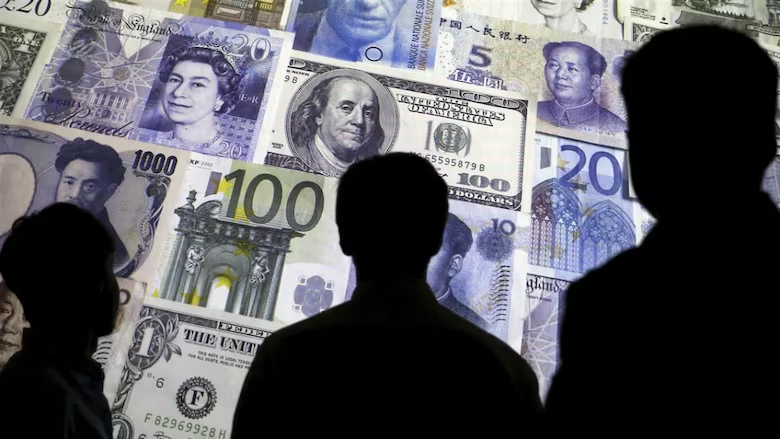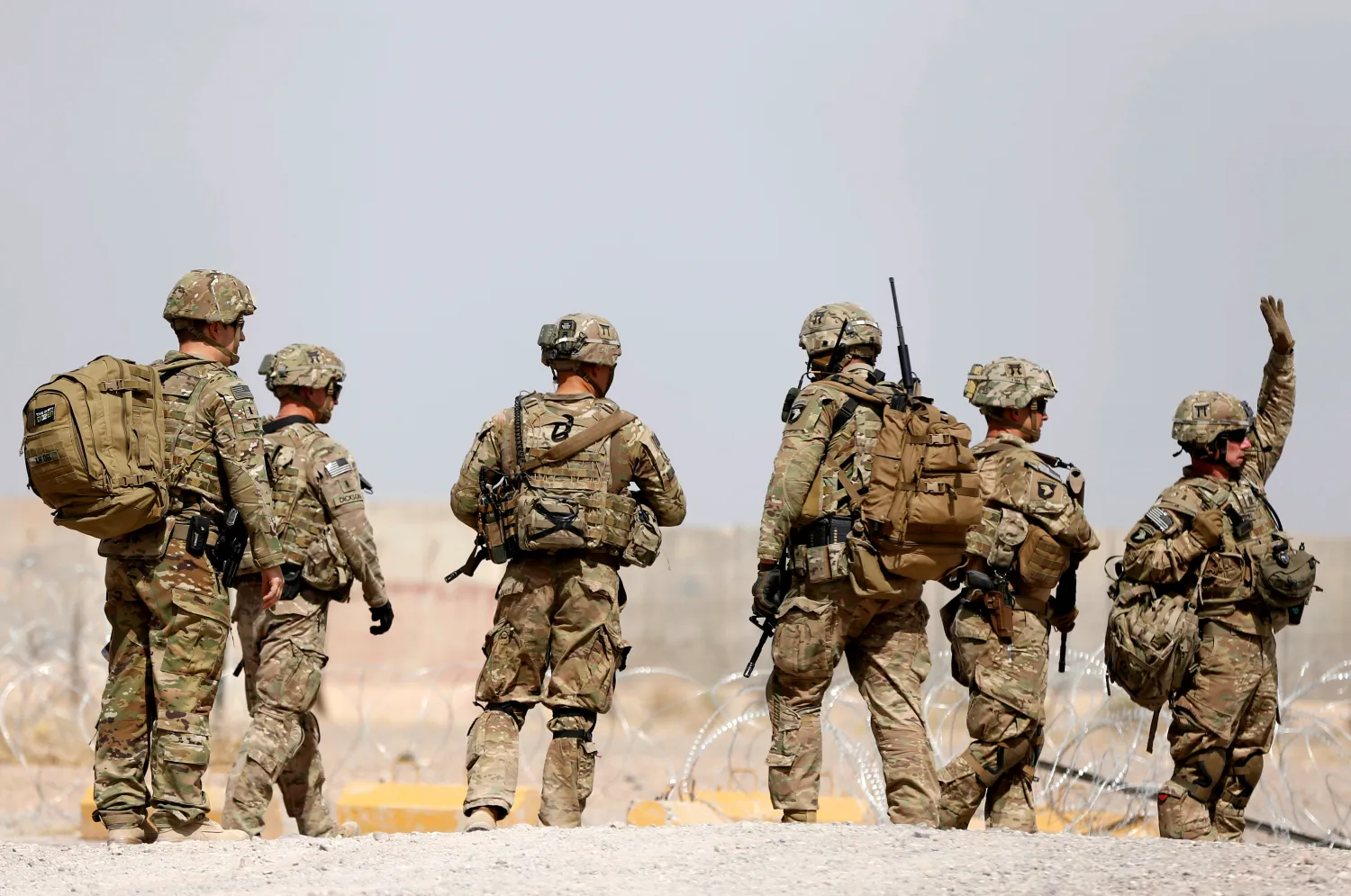What if the same politicians who send troops to war were secretly hiding billions in offshore accounts?
The Panama Papers—a staggering 11.5 million-document leak from Panamanian law firm Mossack Fonseca—blew the lid off a global system of corruption and money laundering. It showed how the world’s richest and most powerful, including U.S. elites, used offshore tax havens to hoard wealth, evade taxes, and, in some cases, profit from war.
This exposé will walk you through the evidence, highlight how U.S. corruption is embedded in this global scandal, and explore how the military-industrial complex is connected to shadowy financial flows. We’ll also investigate the alarming rise in wealth inequality caused by elites hiding money.
TL;DR – Quick Summary
- The Panama Papers exposed trillions in hidden offshore assets.
- Many U.S. elites use legal loopholes and shell companies to hide war profits.
- Defense contractors like Halliburton and Lockheed Martin benefitted massively from wars while minimizing tax burdens.
- Very few Americans were named due to domestic loopholes and Delaware/Nevada shell companies.
- The mainstream media downplayed U.S. involvement.
- The result: growing wealth inequality, weakened public trust, and zero accountability for war profiteering.
What Were the Panama Papers?
The Panama Papers leak in 2016 was one of the largest data breaches in history. Over 11.5 million files were handed to journalists from the International Consortium of Investigative Journalists (ICIJ). These files originated from Mossack Fonseca, a Panamanian law firm known for setting up offshore companies.
Global Impact
The leak implicated 143 politicians, including 12 national leaders, and revealed the mechanisms through which global elites hide money in offshore tax havens like the British Virgin Islands, Seychelles, and the Cayman Islands.
📚 Official Source: ICIJ Panama Papers Database
📖 Full Investigation: The Panama Papers – ICIJ Investigation
How U.S. Elites Escaped the Spotlight
Despite the global nature of the leak, surprisingly few American names appeared. Why?
- The U.S. doesn’t need Panama – states like Delaware, Nevada, and Wyoming offer similar secrecy.
- Many elites used intermediaries or layered companies to avoid direct links.
- U.S. media outlets focused on foreign corruption, subtly avoiding implicating domestic actors.
📺 Watch: “Panama Papers Explained – How the Rich Hide Money”
The Shadow Economy and War Profits
The Panama Papers pulled back the curtain on a $32 trillion hidden economy—a parallel financial system where elites play by different rules. Much of this money isn’t just inherited wealth—it’s generated by conflict.
Wars open up opportunities for contractors, politicians, and intermediaries to make billions from defense spending, while routing profits through offshore accounts.
🌍 Reference: The Hidden Wealth of Nations by Gabriel Zucman
U.S. Corruption and the Military-Industrial Complex
Coined by President Eisenhower, the military-industrial complex describes the close-knit relationship between military contractors and U.S. government officials. Today, this alliance is stronger than ever.
Defense contractors rake in billions annually, with little oversight on how they spend or hide their earnings.
Case Study – Halliburton & Dick Cheney
As Vice President, Cheney had ties to Halliburton, a company that profited immensely from Iraq War contracts—$39.5 billion, to be exact. Many of these profits were routed through subsidiaries in the Cayman Islands.
📑 Source: Center for Public Integrity Report on Halliburton
Case Study – Blackwater (now Academi)
This private security firm earned over $1 billion from Iraq and Afghanistan contracts. Its financial web involved offshore accounts and a lack of transparency. The company’s opaque structure made it nearly impossible to trace financial flows.
Key Figures Named in the Leak
While few Americans were directly named, some U.S.-linked entities emerged.
- Robert Miracle, convicted in 2010 for fraud, was linked to Panamanian accounts.
- The leak revealed connections to CEOs of major U.S. multinationals, though many used proxies or subsidiaries to escape naming.
🕵️ See Full List of Individuals: Panama Papers Offshore Leaks Search – ICIJ Database
This official database by the International Consortium of Investigative Journalists (ICIJ) allows users to search through the names and entities exposed in the Panama Papers, Paradise Papers, and other leaks.
U.S.-Connected Shell Companies
It’s no secret: America has its own version of Panama. Delaware, for example, is home to more companies than people.
🔎 Example: Anyone can start an anonymous LLC in Delaware for under $100—no ID required.
This is how U.S. elites hide wealth without even leaving the country.
The Hidden Wealth of Nations (Book):
Financial Secrecy Index (Report by Tax Justice Network):

Media Silence and Public Deception
U.S. outlets like CNN and The New York Times covered the Panama Papers—but with little scrutiny of domestic players.
Why?
- Many media companies are owned by conglomerates tied to corporate interests.
- A focus on Putin, Assad, and others distracted from U.S. hypocrisy.
🔍 Quote from journalist Jake Bernstein (Pulitzer Prize winner):
“The lack of American names doesn’t mean they’re innocent. It means they’re using better veils.”
The Cost: Wealth Inequality and Lost Trust
Every dollar hidden offshore is a dollar not spent on schools, healthcare, or infrastructure.
- U.S. loses $70–100 billion annually in tax revenue to offshore schemes.
- The top 1% use these loopholes far more than the middle or working class.
🧾 Reference: IRS Reports on Offshore Tax Evasion
This worsens wealth inequality—and erodes trust in democracy.
Global Reactions vs. U.S. Inaction
Iceland’s Prime Minister resigned.
Pakistan’s Nawaz Sharif was removed from office.
Dozens of investigations were launched.
In contrast, the U.S. launched no major prosecutions.
Why?
- Legal tax avoidance vs. illegal evasion.
- Powerful lobbying by financial and defense sectors.
- Lack of political will to investigate elites.
Searching Transparency International’s official website (www.transparency.org) for reports or press releases on the Panama Papers.
Using a search engine (Google, DuckDuckGo) with keywords like:
Transparency International reaction to Panama Papers.
Transparency International Panama Papers corruption report.
Offshore Havens and Legal Loopholes
Many activities exposed in the Panama Papers were technically legal, thanks to loopholes written into tax laws by the same lawmakers who benefit from them.
🛡 Lobbyists spent millions to influence IRS regulations and weaken international transparency efforts.
OECD Report: Addressing Base Erosion and Profit Shifting (BEPS)
The BEPS Project, led by the OECD and G20, aims to combat tax avoidance strategies used by multinational enterprises (MNEs) that exploit gaps in tax rules to shift profits to low/no-tax jurisdictions.
Key Components of the BEPS Framework:
- 15 Action Plans – Covering areas like digital taxation, harmful tax practices, treaty abuse (e.g., via the Principal Purpose Test), and country-by-country reporting (CbCR).
- Pillar 1 & Pillar 2 (Global Tax Reform):
- Pillar 1: Reallocates taxing rights to market jurisdictions for large MNEs (focusing on digital services).
- Pillar 2: Introduces a global minimum tax rate of 15% (GloBE rules).
- Multilateral Instrument (MLI) – Allows treaties to be updated en masse to include anti-BEPS provisions.
Where to Access the Report:
- The official OECD BEPS documents can be found here: OECD BEPS Project
- For the 2015 Final Report (15 Actions): OECD BEPS 2015 Report
Why It Matters:
BEPS has reshaped international tax rules, requiring MNEs to enhance transparency (e.g., CbCR) and align profits with real economic activity. Over 140 countries participate in the framework.
Expert Opinions & Whistleblowers
- Joseph Stiglitz (Nobel Economist):
“These havens distort capitalism.”
- Edward Snowden:
“The scandal isn’t what’s illegal—it’s what’s legal.”
- Julian Assange:
“The leaks prove the system is rigged.”
What Can Be Done? Solutions & Reform Ideas
- End anonymous shell companies.
- Strengthen international financial cooperation.
- Protect whistleblowers and investigative journalists.
- Introduce a global tax registry.
- Punish public officials using offshore havens.
- Increase funding for IRS and DOJ investigators.
- Promote transparency legislation like the Corporate Transparency Act.
- Implement automatic exchange of financial information globally.
- Blacklist tax haven jurisdictions that fail to comply.
- Educate the public to demand accountability.
Conclusion – Where Do We Go From Here?
The Panama Papers were a wake-up call. But while the world stirred, the U.S. largely rolled over. It’s time for citizens to demand transparency and accountability.
Should we continue to let the military-industrial complex fuel wars while the rich stash their earnings offshore?
It’s your money. Your future. Your democracy.
FAQs
Q1: Were any Americans prosecuted after the Panama Papers?
A: No major U.S. political figures were prosecuted, although a few minor individuals faced tax-related charges.
Q2: Is hiding money offshore illegal?
A: Not always. Tax avoidance is legal, but tax evasion is not. Many use legal loopholes to avoid paying taxes.
Q3: How much money is hidden globally offshore?
A: Estimated between $21 to $32 trillion, according to the Tax Justice Network.
Q4: Can the U.S. stop this corruption?
A: Yes, with political will. Laws can close loopholes and end anonymous company formation.
Q5: What’s the role of Delaware in U.S. corruption?
A: Delaware allows anonymous company registration, making it a domestic tax haven often used by elites.
References:
- ICIJ – The Panama Papers: Exposing the Rogue Offshore Finance Industry
The International Consortium of Investigative Journalists (ICIJ) led the Panama Papers investigation and provides extensive resources, case studies, and U.S.-related findings.
https://www.icij.org/investigations/panama-papers/ - The Guardian – Panama Papers: The US politicians, donors and Trump associates in the data
This article explores the connections between the Panama Papers leak and U.S. political and business elites.
https://www.theguardian.com/news/2016/apr/05/panama-papers-us-politicians-donors-trump-associates - The New York Times – The Panama Papers: Here’s What We Know
A summary and analysis of the Panama Papers’ impact, including references to U.S. individuals and global corruption.
https://www.nytimes.com/2016/04/05/world/panama-papers-explainer.html
These sources provide credible background and context for your article on the Panama Papers, U.S. corruption, and the hidden profits of war.




